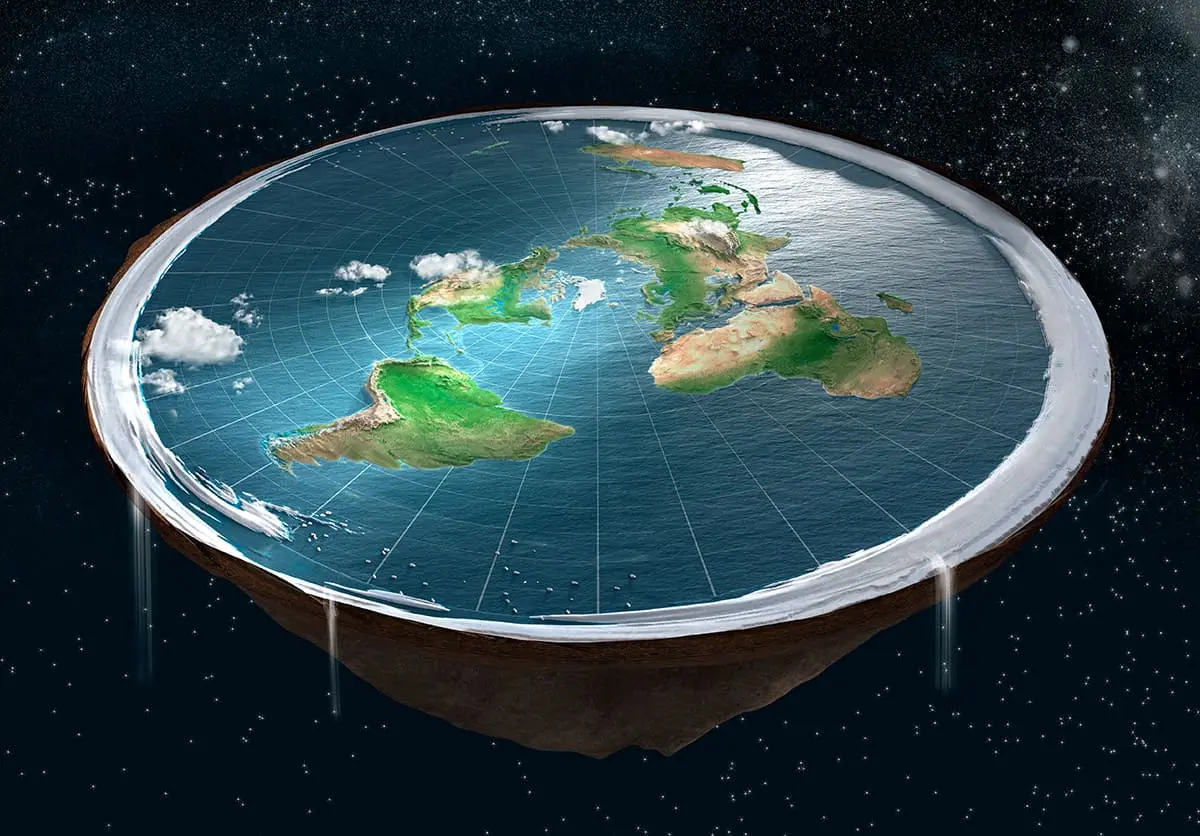The idea that the Earth is a sphere was all but settled by ancient Greek philosophers such as Aristotle (384–322 BC), who obtained empirical evidence after travelling to Egypt and seeing new constellations of stars. Eratosthenes, in the third century BC, became the first person to calculate the circumference of the Earth. Islamic scholars made further advanced measurements from about the 9th century AD onwards, while European navigators circled the Earth in the 16th century. Images from space were final proof, if any were needed.
Today’s flat-Earth believers are not, though, the first to doubt what seems unquestionable. The notion of a flat Earth initially resurfaced in the 1800s as a backlash to scientific progress, especially among those who wished to return to biblical literalism. Perhaps the most famous proponent was the British writer Samuel Rowbotham (1816–1884). He proposed the Earth is a flat immovable disc, centred at the North Pole, with Antarctica replaced by an ice wall at the disc’s outer boundary.
The International Flat Earth Research Society, which was set up in 1956 by Samuel Shenton, a signwriter living in Dover, UK, was regarded by many people as merely a symbol of British eccentricity – amusing and of little consequence. But in the early 2000s, with the Internet now a well-established vehicle for off-beat views, the idea began to bubble up again, mostly in the US. Discussions sprouted in online forums, the Flat Earth Society was relaunched in October 2009 and the annual flat-Earth conference began in earnest.



We should encourage people. Welcome them to submit falsifiable hypotheses, and experimental findings that are repeatable, let them publish their data.
People going against the grain is totally fine, they just need to be experimental and prove it. Engaging with people in rhetorical debates is not productive. Say that’s interesting, I’d love to see your data, what experiments have you done?
This is idealistic, but I think for most people conspiracy stuff is filling an emotional need. If the experiment fails, the emotional problems remain. Thus the theory will be updated to uphold the feelings.
So like if they see a photo of the earth from space, they’re more likely to say it’s a fraud. Truth doesn’t matter. Feelings do.
Anyone who cares about facts on this topic would have left flat-earth after a short while on wikipedia.
So the question is: what emotional need is this filling, and how can it be met more safely?
wow was not expecting decency, respect, and logic. thought this was where we mocked people